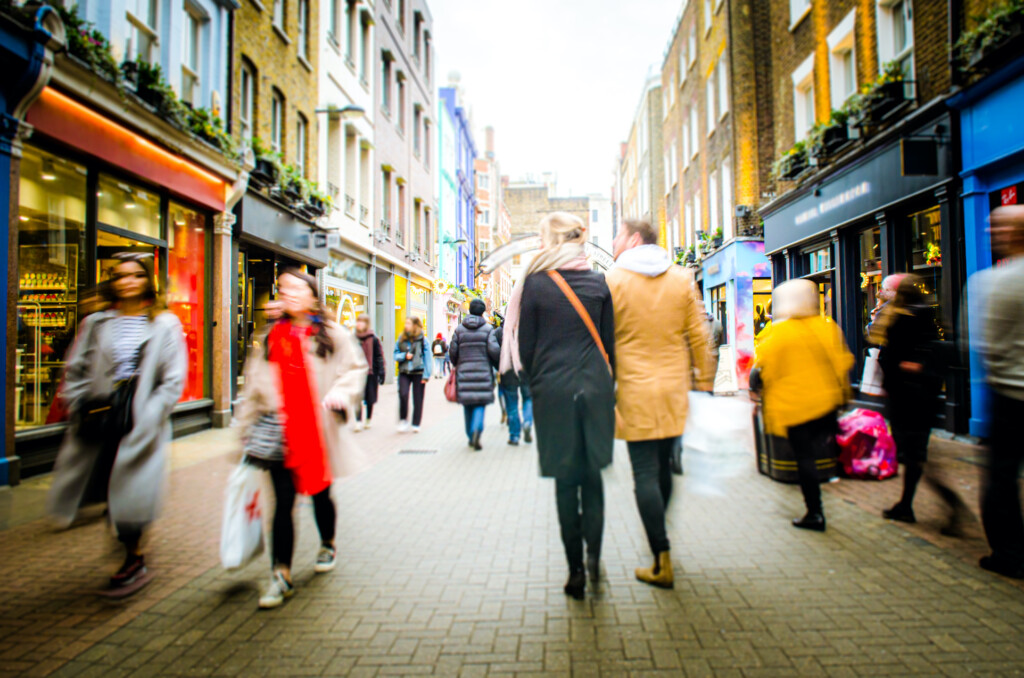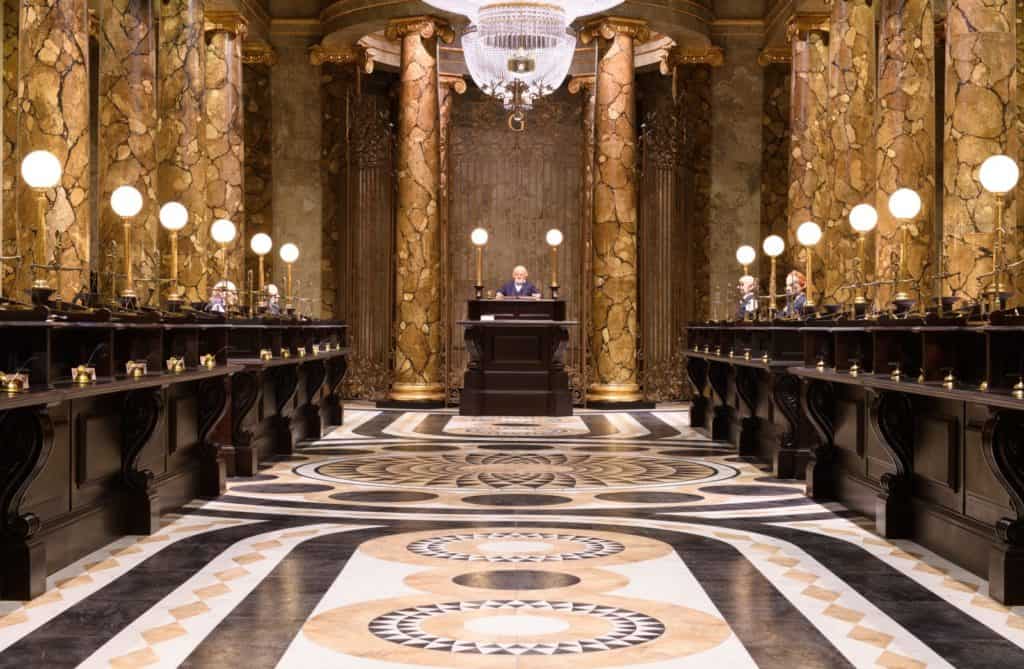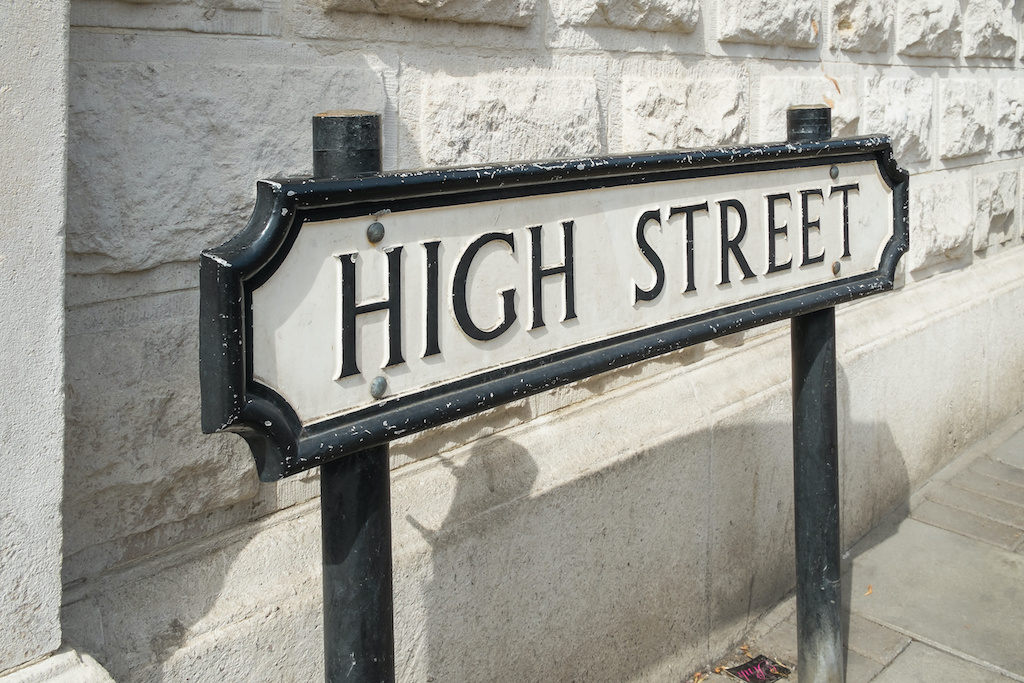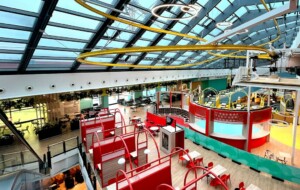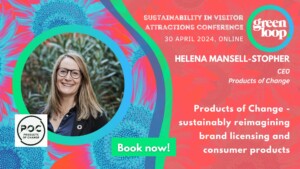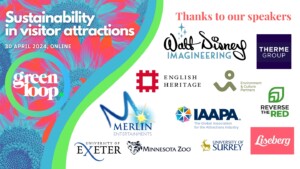As retail changes and society’s expectations evolve, public spaces need to be reimagined as multipurpose destinations. With its Experience on Main Street initiative, the UK Government is looking to help high streets and downtown areas to bring in more footfall, encouraging the retail and leisure sector to adapt and thrive.
A trip to a town centre or shopping mall now almost invariably involves a visit to an F&B outlet and an experiential activity. This is a trend that councils and developers are keen to leverage, given the social, economic, and environmental benefits cultural and experience-led offerings bring to town/city centres and venues.
The development of mixed-use spaces is being supported by planning changes. The 2020 changes to the Use Classes Order now enable landlords to change between retail and workspace use. Organisations such as the Creative Land Trust are emerging to support the creation of affordable space for artists and creatives.
This is an emerging market. The dynamics on the UK high streets are changing; placemaking can help revitalise city/town centres to transform them into vibrant public spaces that improve urban vitality while promoting people’s well-being.
In light of this trend and its potential for business development, Richard Parry, experience economy lead in the UK Government’s Department for Business & Trade, spoke to blooloop about the Experience on Main Street (EOMS) concept.
Introducing Experience on Main Street
“Some time ago, largely in response to Covid, we put together a brochure called Experience on Main Street. This was, quite literally, a catalogue of UK products and services that could help high streets, main streets, and downtown areas attract more footfall,” says Parry.
“The fear was, at the time, that because of Covid and changing working habits, downtown centres would become deserted. It was an attempt to address this.
“It was also a response to the increasing interest that we’ve perceived in popup, semi-permanent or even permanent installations of an immersive, engaging nature that people seem to be drawn to.”
His team has since revamped that brochure, producing a new version for MAPIC in November 2022, and relaunching it to catch the attention of that audience. MAPIC is a leading event for the international retail real estate market, covering the retail, property, leisure and food industries.
Experience on Main Street is aimed at property developers, retail developers, and local authorities. Parry is concerned that it should achieve maximum penetration, reaching everyone who needs to see it.
The experience economy continues
While the cost-of-living crisis might reasonably be expected to impact the experience economy to an extent, in fact, Parry says:
“Clearly, money is going to be tight. Yet there seems to be an almost limitless appetite for this kind of thing.”
He references the late Queen’s lying in state, and the crowds which flocked to view the coffin:
“I was struck by what an event that turned out to be, perhaps by accident. Obviously, a lot of people went there to pay their respects and to honour what the Queen had done. But an awful lot of people went there just to be there.”
He adds:
“Certainly, the way that it was mounted was fabulous. The atmosphere must have been phenomenal. People were obviously quite moved afterwards, as much by the occasion as by the death of the Queen. It just struck me that, cost-of-living crisis or not, there’s an endless appetite for this sort of experiential stuff.”
In light of some of the issues that the world faces at the moment there is, perhaps, more of a need for the experience economy than ever.
The future of retail and entertainment
Imagining the future of innovative retail, hospitality and entertainment involves understanding the market.
“That brings me on to another topic I’ve been mulling over, which is the digital disconnect,” says Parry.
“Gen Z inhabits a digital universe. I know it’s overstated a bit, but I heard something interesting a few weeks ago, which was that Gen Z people much prefer WhatsApp or email to phones. They would much rather have a conversation at a remove, and be able to contemplate their reply a bit more. It’s interesting.
“Then, of course, we, as an organisation are trying to understand the so-called metaverse, NFTs, and so on. We are, like everyone else, groping our way towards some sort of understanding of what it is and what the commercial aspects of it might be – and which elements are a bit overstated, like the Emperor’s New Clothes, and will go away on their own accord, eventually. It is an interesting concept. It remains to be seen what the full potential is.”
Experience on Main Street and the concept of placemaking
Returning to the concept of how placemaking can transform town and city centres, he looks at some of the elements that might pay into that placemaking:
“Nostalgia, or an imagined nostalgia, might be part of it. I’m not sure how intergenerational that is.
“Authenticity is another buzzword. I remember when Warner Bros. Studio Tour London – The Making of Harry Potter opened. Great play was made of the fact that they had genuine coins- galleons – from the film there. This is a made-up currency in a made-up film, so, of course, authenticity is possibly the wrong word. But it did suggest that authenticity.
“Being able to touch and be near something that has a proven provenance is important.”
Parry references Joe Pine, who has written extensively on the emergence of the experience economy:
“Joe Pine has often said that retail hasn’t changed for a hundred years, while everything else has. Why hasn’t retail changed? I think people are beginning to put a certain amount of effort into softening the retail experience. Rather than just going into a shop and having a transaction, it becomes much more of an experience than that.
“Putting coffee in books shops, for instance, was a really great idea. It seems, initially, completely illogical to invite people into your store not to buy something. But it’s a process: something curated, rather than purely transactional.”
The experience is key
Another concept that Pine has outlined – as have others – is charging to go into a retail space because you are providing an experience.
“If we go back to the concept of a bookshop, will people pay just to be a part of the atmosphere, the display, of whatever talks are being held? A lot of agile minds are thinking about this enriching of the prepaid experience.”
“Brand outfits are probably leading the way a bit, but it’s all still a little patchy. A wander down Southampton high street, near where I live, or down high streets in other UK cities, suggests that the experience economy hasn’t reached here yet, and may not, for a while.
“There is a really interesting street in Southampton called East Street. This used to be full of interesting independent shops and still has a few. You could just imagine that being greened, and becoming a little avenue with no cars, no bikes, no nothing: just people, and some interesting shops. It would be a destination. That’s a made-up place maker, but I can envisage that sort of thing as, if not the saviour of bricks-and-mortar retail, at least the next phase.”
A positive reception for Experience on Main Street
The first iterations of Experience on Main Street were well-received, Parry says:
“A lot of nice things were said. And, in fact, it did us a favour because we unearthed a number of companies that we hadn’t heard of before. We had to go and find people, to try and expand our network a bit.
“Several went on to do things internationally, which is pleasing because that was the whole point. It’s a scattering seed type of thing. Putting 75 or 80 companies out there means you might get a hit or two, or you might not. Often, what you sow will fall on stony ground, but when it doesn’t, it might help people think in a different way. As Joe Pine predicted twenty-five years ago, we’re seeing the end of the transactional period or the improvement of transactions.”
Parry says he believes that the EOMS concept has viable applications in pretty much any city: “But we’re struggling to get the concept in front of the right people. As an organisation, we’re not set up to deal with local authorities, landlords, property developers and so on. They are not “buyers” in a sense that we understand. But I’m making some headway, not least in the USA.
“There is a lot of focus on “socialtainment”, especially associated with major IP brands. Whether this is a viable long-term solution for coldspots remains to be seen – but you can’t fault the effort!”
Learn more at the Experience on Main Street conference
An Experience on Main Street Conference is taking place at the Curve Theatre in Leicester on 25 April 2023. This will explore the opportunities within the high street, public realm, and lifestyle destinations.
Organised by Experience UK Trade Association, this one-day event brings together a mixture of government, city and local authorities, developers, planning authorities, architects, cultural and business districts, and retail estate owners. Offering a unique networking opportunity, it allows visitor experience suppliers to learn first-hand business practices and opportunities in order to engage in new partnerships.
The conference schedule includes a series of informative and engaging keynote presentations, panel sessions, roundtables, and networking. Refreshment breaks, a networking lunch and an evening social mixer afford plenty of opportunities for participants to meet with fellow UK visitor experience suppliers to unlock potential partnerships in this emerging field.
Attendees will also be able to gain access to the EoMS Research report. This has been produced in partnership with the Department for Business and Trade.
The Experience on Main Street Conference is sponsored by Katapult, the international guest experience design agency. It is designed to be of value to technology and design companies offering cutting-edge services and solutions to revitalise the UK high streets.

